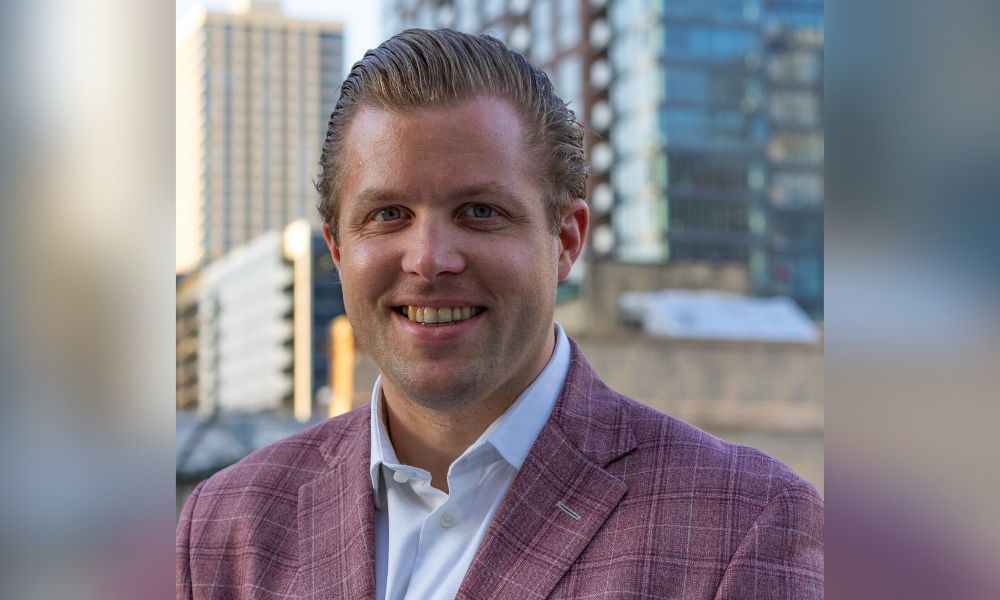How do you feel about financial advisors?
Do you have one? Do you want one? Would you trust one? Is outside financial advice even important to you?
That’s not the start of a pitch for financial advisors—it’s a series of questions meant to get your brain humming. Because today, we’re going to explore this topic through the eyes of BIPOC (Black, Indigenous, and People of Color) communities. And as you’ll find out, a person’s background has a lot to say about their thoughts on financial planning—but in some cases, maybe not in the ways you’d think.
The Tea
For the past few years, The Allianz Life Insurance Company of North America (Allianz Life) has been surveying Americans’ views on retirement planning. And their most recent survey found that after a drop in 2022, BIPOC Americans re-engaged with professional financial advisors in 2023.
YATI Tip: You don’t necessarily need a massive nest egg to retire early. We look at one example: Retiring at 60 with $500,000.
Some of the most noteworthy findings:
- Black Americans who said they have a personal advisor rose from 24% in 2022 (down from 2021) to 36% in 2023.
- Hispanic Americans who said they have a personal advisor rose from 35% in 2022 (also down from 2021) to 42% in 2023.
- When asked, “Right now, how confident do you feel about being able to financially support all the things you want to do going forward in your life?” Black, Hispanic, and White Americans all reported an 80% confidence level—that marks a 9-percentage-point year-over-year increase for Black Americans, and a 5-percentage-point increase for Hispanic Americans.
- The most frequently given reasons for not having a financial advisor, among all communities, were “I don’t have enough money” or “It costs too much to work with one.”
“It’s great to see an increase in diverse populations working with financial professionals and gaining confidence,” says Travis Walker, Business Solutions and Diversity Consultant, Allianz Life. “But clearly the industry has more work to do. We have to really listen to what our clients and potential clients are telling us about what they want, and don’t want, in a financial professional.”
The Take
So … what do clients and potential clients from different communities want? And what educates their views on financial advice and retirement planning?
This week, we sat down with Walker to tap his brain, and his 15-plus years of experience at Allianz Life, for answers.
Why has the number of BIPOC Americans with a financial advisor shifted so much of late?
We mentioned earlier that both Black and Hispanic Americans who said they have a personal advisor jumped in 2023. But they jumped from 2022 numbers that themselves were significantly lower from the prior year—Black Americans with a personal advisor sagged from 38% in 2021 to 24% in 2022, and Hispanic Americans with a personal advisor were down from 44% in 2021 to 35% in 2022.
So, just as noteworthy to us wasn’t just the rise, but the sizable shifts in both directions in such a short time. And those shifts say something about the nature of both communities’ relationships with financial planners.
“Based on the conversations I’ve had, when you’re talking about Black retirees, Hispanic retirees, and working with a financial advisor, it’s not something as baked into the culture,” Walker says.
Why does that matter? People who are newer to having a financial advisor view it as a relative luxury, Walker says, rather than a stable presence to have in their lives. Thus, as priorities shift—say, needing to pay down debt, build up assets, etc.—their views on needing financial planning help shift. And there’s a lot of this happening post-pandemic, with people losing jobs, re-entering the workforce, getting a new 401(k), rolling over a 401(k) to an IRA, etc.
YATI Tip: Looking to rollover your retirement account? Check out these best rollover IRAs.
“I know a lot of the people I work with know the value of staying the course, and they’ve always had a financial advisor in their family,” Walker says. “If they’re new, they’ll hit pause, and then as they’ve gained more confidence, it just becomes something they’re more accustomed to and stay the course.”
How does wealth impact views on financial advisor needs?
A common theme among all communities is believing you don’t have enough money to merit financial planning. “You look at median household income, what you earn, and you might say to yourself, ‘I don’t have enough money to be significant. Why would I be doing this? Why would I need [a financial advisor]?” Walker says. “All I know is I have to pay these bills, knock out this debt … tackle things that are right in front of me.”
But the onus isn’t just on the people who need financial planning—financial advisors and institutions can also unintentionally send the wrong message to potential clients.
YATI Tip: Looking to offload your stock selection? We’ve looked at two popular Motley Fool services: Stock Advisor and Rule Breakers.
“So, there was a time where you could get into an Allianz annuity for like, $2,000 for nonqualified funds, and $5,000 minimum for qualified funds. Then at some point, Allianz, along with the rest of the industry, shifted to $10,000 on some products, and others $20,000,” Walker says. “And some of the feedback you’d get from John Q. Public was, ‘I guess they’re only making products for rich people.’ So you’re inadvertently turning away customers without having the conversation.”
Effectively, when people see the minimum buy-ins for certain products, they look at not just the product, but financial planning in general, as something that’s not really made for them to participate in. “They start filling in the gaps themselves. ‘This is what it will take, this is what I’ll need, I’m not their ideal client,'” Walker says. “From that standpoint, if you’re an advisor, that’s when you need to say, ‘There’s room for everybody. I have high-net-worth clients. But I have regular people with 401(k)s, 403(b)s. I can service all of that.'”
What impacts BIPOC communities’ feelings toward financial planning?
Walker says that while various groups face similar challenges, how they perceive those challenges (and how they approach them) can vary widely.
Take life insurance, he says. “We all know we need it. But how important that is for an Asian American with a longer life expectancy will be different from a Black person who’s looking at final expense costs. So even though we’re asking the same question, the number might be higher for a different group for a different reason.”
Life experiences also come into play.
“All the experiences I’ve had as a black man, and also traveling the country and talking to people … knowing historically what you face not just in financial services but any institution or government you’ve had to deal with, that starts to shape and inform your opinion on things.”
The same goes for financial goals, which vary not just by community but by other factors, such as when one’s family entered the country, or even age.
YATI Tip: If you have built significant wealth, learn about how to become an accredited investor.
“If you came from a Hispanic or Asian country, you’re more likely to be an immigrant [than a person who is white or Black],” Walker says. “There are cases where people are sending money to other relatives. Or if they’re first- or second-generation, they’re trying to make sure their children have an education; homeownership might be very important to them, too. That’s based on my conversations with people in the field.”
“A lot of people in older generations, especially Black Americans, aren’t going overseas for vacations. Their roots are here, they’re established here,” he says. “Navigating Medicare or insurance is also a different concern for people who expect to live 90 years vs. someone whose family history suggests that maybe they die in their 60s or 70s.”
How much does representation matter?
One finding from the Allianz Life study was that “Black Americans, more than any other group, say that having an advisor with ‘similar characteristics to me, such as similar age, gender, race’ would make them more likely to work with a financial advisor.”
Walker sees representation as a positive, but not necessary to build a relationship with an advisor.
“It’s a ‘nice to have,’ not a ‘need to have,'” he says.
“I think we all like representation. I know that if a young woman sees [a woman] who’s a CEO or a movie character, or a young man sees someone from his high school who got drafted by the league, they realize, hey, anything’s possible,” he says. Similarly, in financial planning, “there’s a level of trust that comes about when you can see yourself in that person.”
“But if you don’t have that—I’d say, as long as you’re transparent and know it’s a two-way street and you have to establish trust, it’s not going to eliminate the chance of doing business with them.”
—
Thank you for stopping by this week! And if you still haven’t bought candy for this year’s trick-or-treaters, we suggest listening to Editor-in-Chief Kyle Woodley’s appearance on the Wealth of Geeks Podcast, where he takes a break from financial matters to talk about the best (and worst) Halloween candy.
Riley & Kyle
Young & The Invested (Soon to be WealthUp)
The views and opinions expressed herein are the views and opinions of the author and do not necessarily reflect those of Nasdaq, Inc.







































